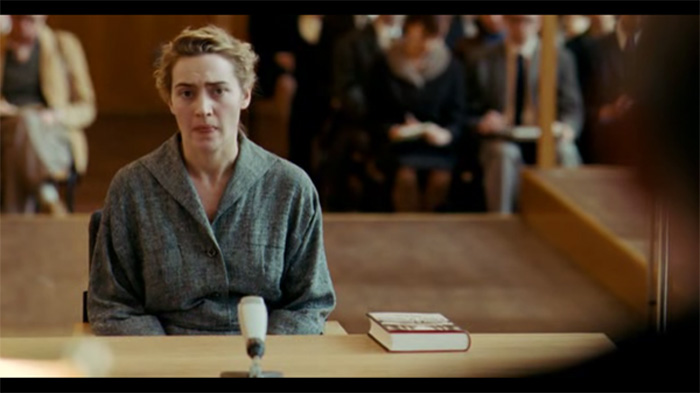According to director Stephen Daldry, the ambiguity is intentional:
I think it's a complex story, and there is a great ambiguity. And one
of the things we work very hard to do is to maintain that ambiguity,
so people can have different responses to it. Mr. Schlink wrote the
book about a generational issue, about how to love. I think he wanted
to talk about, for his generation, the difficulties of loving your
parents or your teachers or your pastors, and to heighten that issue,
put the generational issue into a love affair. How is it possible to
love in the context of a generation that's been through [genocide]? Is
it possible to love? Is that love valid or invalid? When you find out
the truth about the person you love, does that mean that everything
you had together is a lie?
One of the stories that Michael reads to her, Checkhov's The Lady with the Dog, was chosen particularly because it is known for its lack of resolution.
The story is a parable which was written to help the generation that came after deal with what came before. The question facing the court is not whether she is guilty or not, but her level of responsibility for this particular event. She admits her guilt with regard to the women whom she sent to be gassed. She demonstrates brutality in her dominant relationship with Michael. Whether or not she ordered the burning, she did not stop it, so she is guilty. That she would accept full responsibility for the burning over the others because she was embarrassed to admit illiteracy is telling - her illiteracy is a metaphor for whatever blindness allowed Germans to allow these atrocities to happen, and no matter what the level of actual involvement, many Germans of that generation carry the guilt as if they had ordered the atrocities themselves. Whatever excuse they have for the decisions they made seem trivial in light of the atrocities, and we see that juxtaposition in Hanna's case before the court. The challenge for Michael is what to do with the love he felt for her, just as the next generation of Germans had to deal with their love for their parents.

